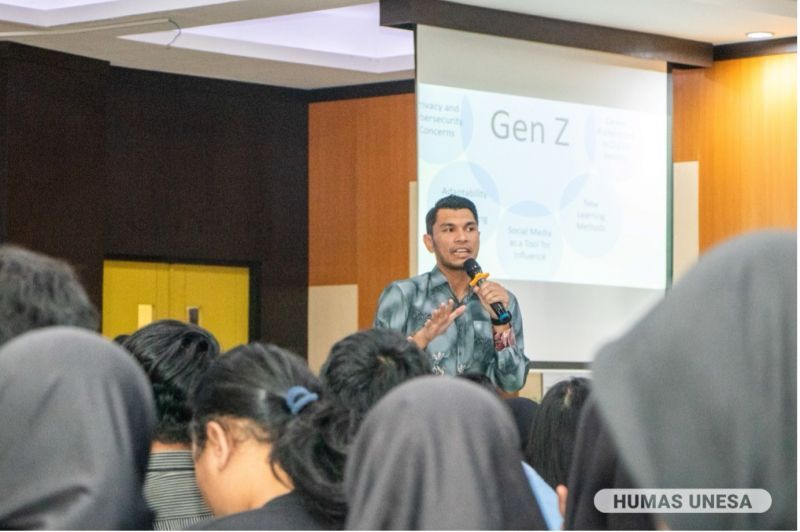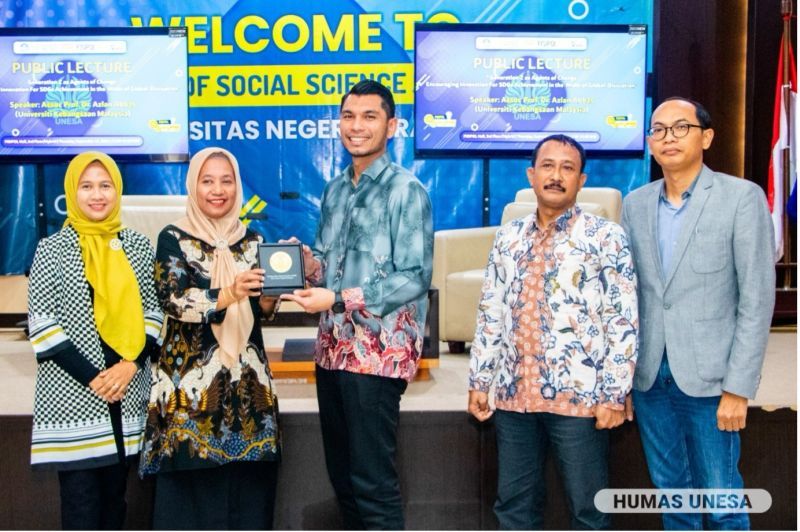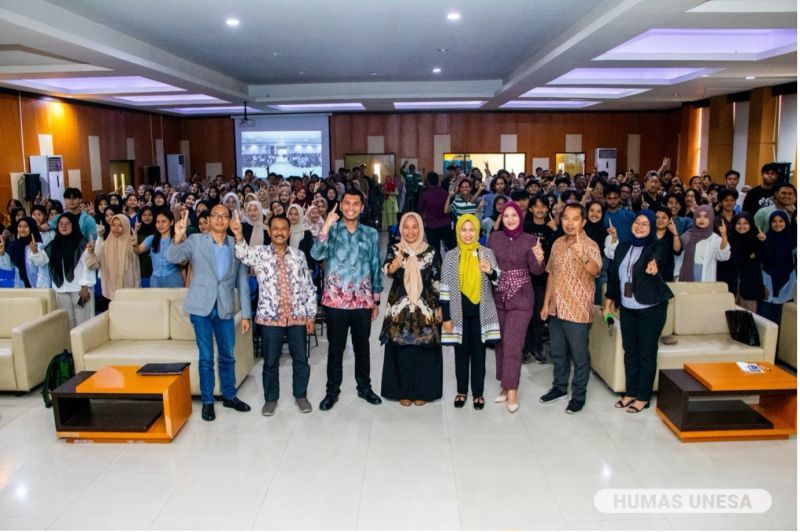
Azlan Abbas from Universiti Kebangsaan Malaysia delivered material about Gen Z in front of new Fisipol UNESA students.
Unesa. ac.id, SURABAYA—Faculty of Social and Political Sciences (Fisipol) Surabaya State University (UNESA) held a public lecture entitled "Generation Z as Agents of Change: Encouraging Innovation for SDGs Achievement in the Midst of Global Disruption” on Thursday, 12 September 2024.
The event which took place in a hybrid manner at the UNESA Fisipol Auditorium and Zoom Meeting presented Assoc Prof Azlan Abbas from Universiti Kebangsaan Malaysia as the main resource person.
Lecture This guest received special attention because it was attended by new Fisipol students class of 2024, who were taking part in the campus internationalization program for the first time. In his speech, the Dean of Fisipol, Wiwik Sri Utami expressed his thanks to all parties who had contributed to the success of the event.
"The theme of this guest lecture is relevant to generation Z, who have extraordinary multitasking abilities, such as listening to lectures while replying to the chat. "Potential like this must be utilized well in order to become an innovative agent of change in the midst of global disruption," said the geography lecturer.

The Dean of Social and Political Sciences gave a souvenir to Azlan Abbas.
In the presentation. Azlan Abbas explained that generation Z lives in a world that continues to experience major disruption. Global challenges such as climate change, inequality and economic instability have become important issues. which requires innovation and solutions from the younger generation.
"They are digital natives who are not only able to adapt quickly, but also redefine the way of living and working in a world full of challenges. "They must understand that this change is not a threat, but an opportunity to create a better future," he said.
He added that Gen Z is known as innovators in technology, a generation that is generally naturally adaptable to technology, with a career inclination in the digital sector, multitasking abilities, and proficiency in using social media as a tool to influence and spread ideas.

The Dean and his staff and resource persons with Fisipol students.
"Media "social for generation Z is not only to socialize, but also to form opinions and have a big influence on social issues," he added.
Furthermore, he highlighted that generation Z has a natural connection with the Sustainable Development Goals or Sustainable Development Goals (SDGs). Their digital fluency makes them key actors in driving the achievement of the SDGs.
"Generation Z fits perfectly with the SDGs vision. They grew up with an awareness of global issues such as climate change and social inequality, and with their technological capabilities have, they are the main players who can encourage the achievement of these goals," he explained.
He also said that Gen Z is not only changing learning methods by utilizing technology, but also redefining career preferences in the digital era, making them an adaptive group with great potential to become future leaders.[]
***
Reporter: Prismacintya (FBS)
Editor: @zam *
Photo: UNESA PR Team
Share It On:






